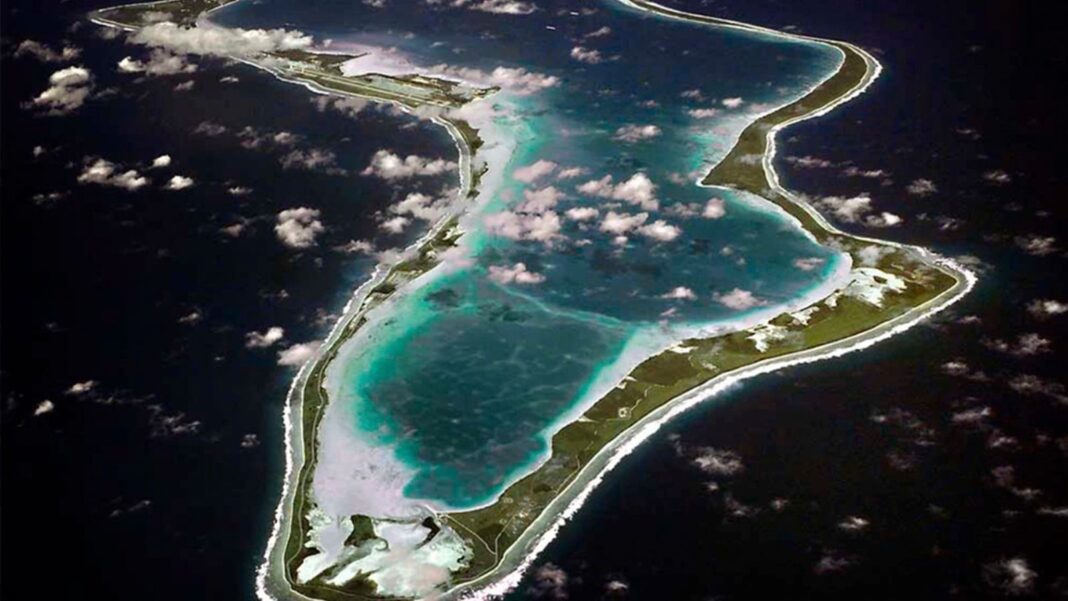Historic Decision Transfers Control to Mauritius
The UK government has reached a major agreement to transfer sovereignty of the Chagos Islands to the island republic of Mauritius. As part of the deal, the UK will pay Mauritius an average of £101 million every year for the next 99 years. This marks the end of Britain’s direct control over the Chagos Archipelago, a group of islands in the Indian Ocean.
Under this agreement, Mauritius will officially gain sovereignty over the entire Chagos Islands. However, one island—Diego Garcia—will continue to host a joint military base used by both the UK and the United States. The deal includes a 99-year lease that allows both countries to keep using the base. The lease may also be extended for an additional 40 years in the future.
The agreement includes strict security measures. A 24-mile buffer zone has been set up around Diego Garcia. Without UK consent, nothing can be built in this area. Other islands in the Chagos group will also remain off-limits to foreign military or civilian operations. The UK has retained the right to block any outside access to these areas.
This new arrangement was made after years of pressure on the UK to return the islands to Mauritius. The islands were initially separated from Mauritius in 1965, when it was still a British colony. In 1968, the UK paid £3 million to acquire the islands. The United Nations and other international organizations started endorsing Mauritius’s claim to the territory many years later.
Displacement of Chagossians and Legal Objections
There used to be thousands of people living in the Chagos Islands. But when the United States and the United Kingdom decided to build a military base on Diego Garcia, those people were forced to move. The majority of them were moved to the Seychelles and Mauritius. Some agreed to go to the UK, primarily to Crawley, West Sussex.
Over the years, many Chagossians have asked to return to their homeland. However, the new deal does not allow people to live again on Diego Garcia because of its use as a military base. Mauritius is allowed to set up a resettlement program on the other islands, but it is not required to do so.
Recently, two Chagossian women went to court to try to stop the agreement. They were born on Diego Garcia and hoped to return to live there. They argued that the UK did not ask the Chagossian people for their views on the future of the islands. They also feared that Mauritius might not treat them fairly or give them the chance to go back.
A judge temporarily blocked the deal in the early morning hours, but the court later decided to allow it to go ahead. Many Chagossians were disappointed by this outcome and said they felt ignored and betrayed. They said they did not feel represented in the decision and worried about their future rights and identity.
Some groups and individuals have also expressed anger about the UK handing over the islands while still paying Mauritius. They defined it as renting something after giving it away. Critics have pointed out that Mauritius has strong ties with China, and that this could pose a security risk for the UK and its allies.
Global Reactions and Military Significance
The military facility on Diego Garcia is thought to be essential to international security. Both the United States and the United Kingdom use it to support activities in the Indian Ocean region and beyond. Many countries see the base as a way to keep peace and stability in the area.
Leaders from several allied countries have welcomed the new deal. They believe it protects the future of the military base and keeps it out of the hands of countries that could pose a threat. The agreement also prevents other nations from building military bases near Diego Garcia or using nearby waters for joint military exercises.
The deal also says that Mauritius must be informed of any activities coming from Diego Garcia. This means they will be part of discussions about how the base is used. Some believe this is a major shift, as it gives a new country a say in military actions that could affect many parts of the world.
While the governments of the UK, US, and Mauritius have supported the deal, not everyone agrees. Some experts and political leaders have described it as a loss of control for the UK. They say it may limit how the base can be used and put national security at risk.
Meanwhile, there have been mixed reactions among the Chagossian people. Some are celebrating the transfer of the islands to Mauritius, calling it a step toward justice and recognition. Others are deeply upset, saying their voices were not heard and that they are still not allowed to return home.
Only until it has been approved by the parliaments of the UK and Mauritius will this agreement become operative. Until then, discussions over the history, present, and future of the Chagos Islands continue to stir up strong emotions in communities and governments alike.

